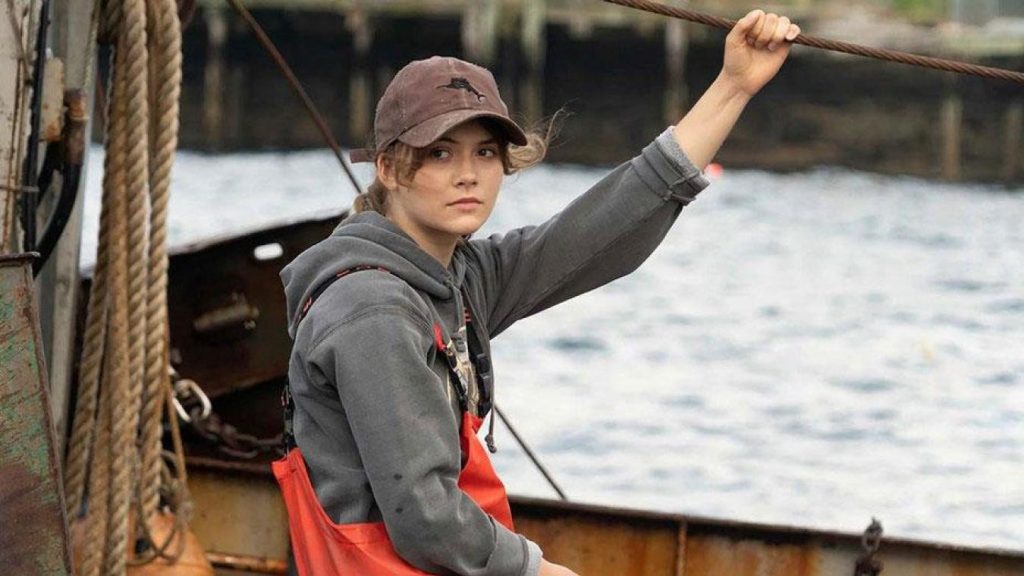
CODA generated both industry buzz and impossible expectations coming out of this year’s virtual Sundance Film Festival. An acronym for “child of deaf adults”, CODA is the first entry to ever win the Directing Award, Audience Award, and Grand Jury Prize — as well as a Special Jury Prize for Best Ensemble. Netflix and Amazon were both eager to acquire the rights to the film, but Apple Studios ultimately prevailed, premiering in theaters and on their signature streaming service August 13. It is the first theatrical release to have burned-in subtitles, making it accessible to hearing-impaired audiences everywhere without the need for special glasses and supporting projection technology.
Writer-director Siân Heder’s adaptation of the French film La Famille Bélier feels entirely original, despite some familiar themes for a coming-of-age story. Actress Emilia Jones plays Ruby, the only hearing member of a deaf family from the modest fishing town of Gloucester. Rising hours before dawn to work aboard her family’s tiny fishing trawler, she returns exhausted to endure the anxieties and drudgeries of high school. But what secretly stirs her soul is singing, a guilty pleasure she embraces, belting out Etta James with abandon into the vast ocean knowing no one can hear her.
Though this setup sounds like a cacophony of cliches and trite archetypes, Heder’s taut screenplay and directorial restraint somehow make CODA feel surprisingly fresh and inspired. The visual style, from the deft composition of each shot to the deliberate color palettes, highlight an artist’s attention to detail and reflect the quaint serenity of her native Massachusetts. Scenes that could easily descend into predictable dialogue between parent and child about following your heart instead create greater distance as familial obligations seem destined to undermine Ruby’s unappreciated gift. Though there are echoes of Running on Empty and Goodwill Hunting, the plot and its constituent parts never feel overly contrived or overtly derivative. Comparisons are somewhat inevitable, so if you’re going to have them anyway, likening a film to the work of Sidney Lumet or Gus Van Sant is high praise.
Performances from Marlee Matlin and Troy Kotsur as Ruby’s parents, and Daniel Durant as her older brother, are complex, clever, and captivating. With extended conversations exclusively in American Sign Language, audiences who feel overwhelmed following their facial expressions, animated gestures, and fast-paced subtitles will gain a small glimpse of the challenge of having to listen with only your eyes. In a particularly pivotal scene, Heder drops the audio out entirely, an immersive and emotional reveal that will likely leave audiences silent as well. Eugenio Derbez’s performance as Ruby’s choir teacher and mentor adds necessary levity, yet still amplifies the urgency of her looming choice to leave her family or abandon her dream.
However, Jones’ poignant portrayal is so subtle and sincere, it does what few performances from relative newcomers, or even seasoned screen veterans, tend to do. It genuinely suspends disbelief. Not only is her performance as the family’s de facto interpreter completely credible, her vocal abilities capture the raw joy of singing for someone who doesn’t realize she can really sing. Point of fact, Jones had to learn to sign and to sing for her role, making the authenticity of both all the more remarkable. But Ruby’s story is actually two stories, and that may be where CODA succeeds and shines most. Just as the awkward teen begins to consider a future beyond the deck of her family’s struggling fishing boat, the unlikely opportunity to audition for Berklee College of Music starts to slip away. Though she is in many ways isolated from her family by her ability to hear, she is simultaneously the sole connection they have to their community, one where they’ve only recently become less alienated after organizing a fishing co-op to help their neighbors fetch fair prices for their collective catch.
Without spoiling the ending, Ruby’s mutually exclusive worlds converge in a climatic closing song that illustrates why Apple was willing to write a check for $25 million without blinking, the highest amount ever paid for a Sundance film.
Though it’s a film rooted in universal family dynamics, there are some scenes that are probably too racy in subject matter for younger audiences. That said, CODA is sentimental without apologies, alternating between laughs and tears through a natural narrative that is thought-provoking without becoming preachy or political. Though this is likely the first exposure many will have to writer-director Siân Heder and actress Emilia Jones, it surely won’t be the last. ▩
CODA premieres in theaters and on Apple TV+ on August 13.